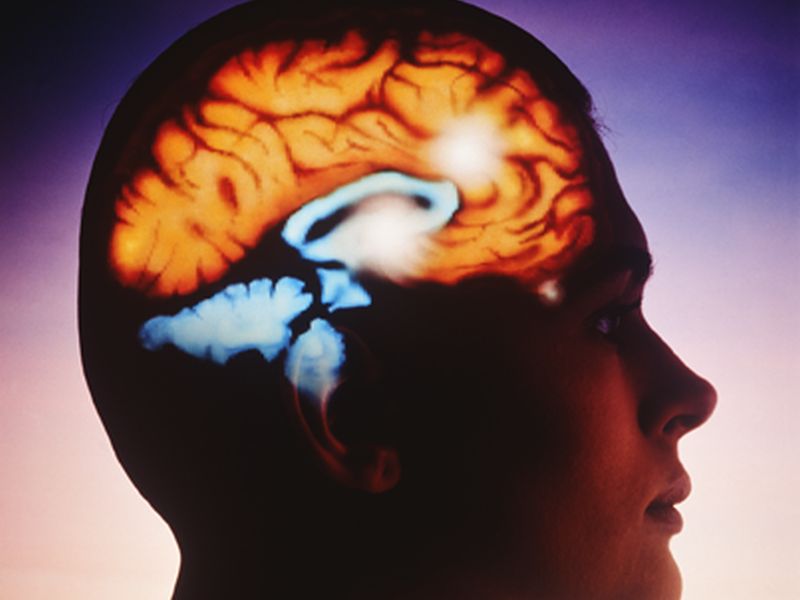

Magnetic Brain Stimulation May Quiet 'Voices' in Schizophrenia
Noninvasive treatment worked for a third of patients in study, though effects were temporaryThursday, September 7, 2017

THURSDAY, Sept. 7, 2017 (HealthDay News) -- A therapy that stimulates a region of the brain linked to language may help quiet the hallucinatory "voices" that often plague schizophrenia patients, new research suggests.
A voice hallucination "seems very real for the patient, and very disturbing," explained study author Dr. Sonia Dollfus. "The voices can be felt inside or outside the brain."
Dollfus is head of the mental health department with the Hospital Center University of Caen in France.
Typically, the 70 percent of schizophrenia patients who experience these voices are treated with antipsychotics, she said.
Unfortunately, not all patients respond, but this new treatment may be a "very promising" alternative, she added.
Dollfus noted that voice hallucinations can involve just one voice or several voices, speaking intermittently or constantly. In some cases the voices -- which can be adversarial or friendly -- converse among themselves, while in other cases they "speak" directly to the patient.
Transcranial Mental Stimulation (TMS) is not an entirely new concept, having first been studied in 2000 as a means for tackling a range of psychiatric concerns, including depression.
To further explore its potential for schizophrenia patients, the researchers focused on a language-associated part of the brain's temporal lobe that had not been the target of previous TMS efforts.
The study team also dramatically upped the frequency of the magnetic pulses, jumping from just 1 stimulation per second to 20 per second.
Over two days, the scientists divided nearly 60 French schizophrenia patients into two groups. One group was exposed to two daily 13-minute sessions of TMS, while the other went through the motions of sham TMS treatment.
Two weeks after treatment, investigators found that more than third of those in the TMS group experienced a 30 percent drop in voice hallucinations. This compared with roughly 9 percent among those who had been offered a sham treatment. No major side effects were observed among the TMS group.
"We observed a significant reduction of voices 14 days after the stimulation," Dollfus noted. "But the efficacy was transient. So we need to continue the research to maintain this efficacy a longer period of time."
She and her colleagues presented their findings this week in Paris at a meeting of the European College of Neuropsychopharmacology. Research presented at medical meetings is considered preliminary until published in a peer-reviewed journal.
Dr. Jeffrey Borenstein, president and CEO of the Brain & Behavior Research Foundation in New York City, noted that auditory hallucinations "are a very common symptom among people with schizophrenia."
The TMS intervention is an "encouraging" new approach, given that "it can be used in conjunction with medication to treat auditory hallucinations," he said.
Still, Borenstein cautioned that the study was small, stressing that "more work needs to be done before we understand the viability of TMS in the treatment of auditory hallucinations."
SOURCES: Sonia Dollfus, M.D., Ph.D., professor, psychiatry, and head, mental health department, CHU Caen, ISTS, University of Caen, Normandy, France; Jeffrey Borenstein, M.D., president and CEO, Brain & Behavior Research Foundation, New York City; Sept. 5, 2017, presentation, European College of Neuropsychopharmacology meeting, Paris
HealthDay
Copyright (c) 2017 HealthDay. All rights reserved.
News stories are written and provided by HealthDay and do not reflect federal policy, the views of MedlinePlus, the National Library of Medicine, the National Institutes of Health, or the U.S. Department of Health and Human Services.




























.png)











No hay comentarios:
Publicar un comentario